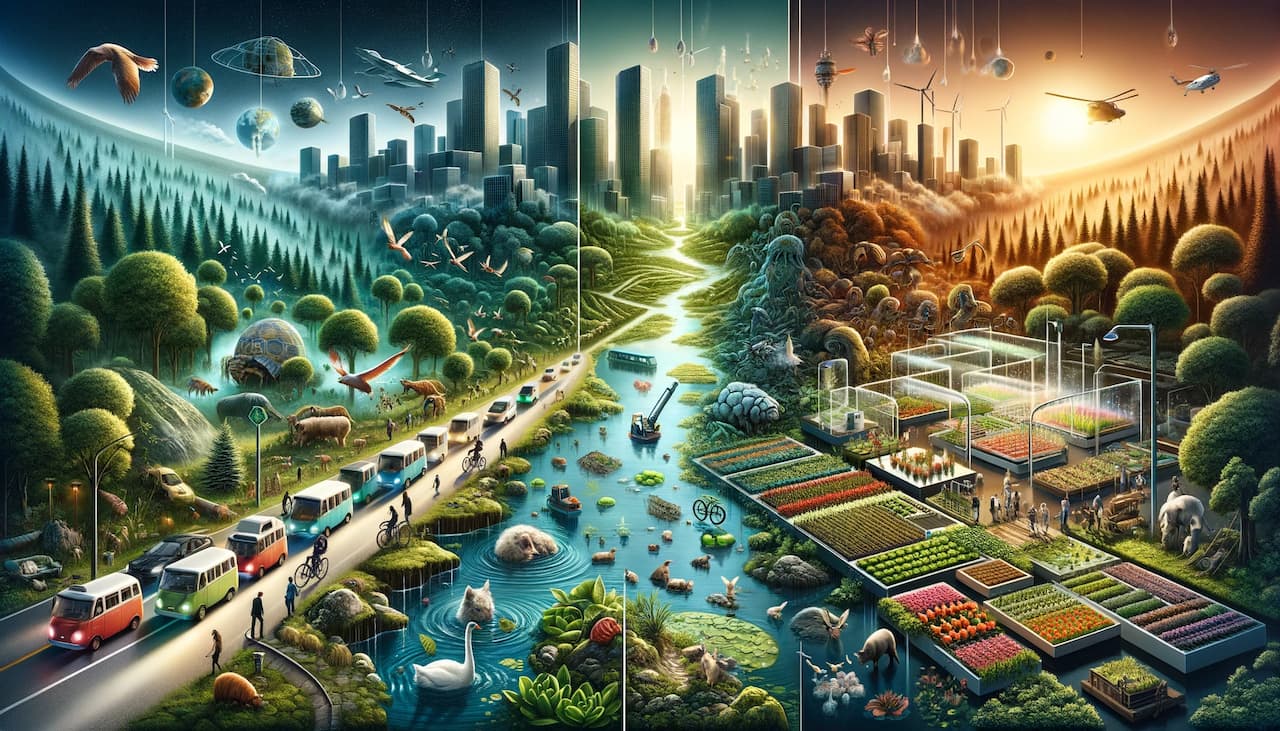The modern world faces a constellation of interconnected challenges that span across ecology, transport, and agriculture. Each sector, while distinct, influences and is influenced by the others, creating a complex web of issues that demand innovative, sustainable solutions. Addressing these challenges is crucial for ensuring the health of our planet, the efficiency of our transport systems, and the sustainability of our food sources. This exploration delves into the key issues and potential strategies for navigating the obstacles in these critical areas.
Ecology: Preserving Biodiversity and Combating Climate Change
Ecological challenges are at the forefront of environmental concerns, encompassing biodiversity loss, habitat destruction, and the overarching threat of climate change. These issues are exacerbated by human activities such as deforestation, pollution, and unsustainable land use practices. To address these challenges, conservation efforts must be intensified and coupled with strategies to reduce carbon emissions. This includes protecting natural habitats, restoring degraded ecosystems, and implementing green infrastructure projects in urban areas. Moreover, transitioning to renewable energy sources and enhancing energy efficiency in all sectors are essential steps in combating climate change.
Transport: Enhancing Sustainability and Efficiency
The transport sector is a significant contributor to global greenhouse gas emissions, yet it is essential for economic development and connectivity. Modern challenges in transport revolve around reducing environmental impact while improving efficiency and accessibility. Electrification of public and private transport, investment in sustainable infrastructure like bike lanes and pedestrian paths, and the development of smart, integrated public transport systems are key strategies. Additionally, embracing innovative technologies such as autonomous vehicles and drones for cargo delivery can further reduce emissions and congestion, contributing to cleaner, more efficient transport networks.
Agriculture: Ensuring Food Security and Environmental Sustainability
Agriculture faces the dual challenge of meeting the growing global food demand while minimizing its environmental footprint. Key issues include water scarcity, soil degradation, and the overuse of chemical pesticides and fertilizers. Sustainable agriculture practices, such as precision farming, agroforestry, and organic farming, offer pathways to increase productivity without compromising ecological integrity. Implementing water-efficient irrigation technologies and developing crop varieties resistant to pests, diseases, and environmental stresses are also vital. Moreover, reducing food waste and transitioning to more plant-based diets can significantly lower the environmental impact of the food system.
Integrated Solutions for a Sustainable Future
Addressing the challenges in ecology, transport, and agriculture requires an integrated approach that considers the interdependencies of these sectors. For instance, sustainable land management practices can contribute to ecological preservation, agricultural productivity, and carbon sequestration. Similarly, developing green transport networks can enhance access to markets for agricultural produce while reducing emissions.
Adopting a circular economy model presents another innovative solution to these interconnected challenges. By redefining growth to focus on positive society-wide benefits, it decouples economic activity from the consumption of finite resources. This approach encourages the reuse, sharing, repair, refurbishment, remanufacturing, and recycling of materials and products throughout their lifecycle. In agriculture, this could mean transforming waste into resources, such as using organic waste for composting or biogas production, thereby reducing reliance on synthetic fertilizers and enhancing soil health. In transport, a circular economy could promote the use of sustainable materials in vehicle manufacturing and incentivize the shift towards shared and public modes of transportation, further reducing the sector’s carbon footprint.
Key Takeaways and Future Directions
| Theme | Key Insights | Future Directions |
| Ecology | Urgent need for global environmental policies. | Enhanced international collaboration and stricter environmental regulations. |
| Transport | Shift towards electric and sustainable modes of transport. | Investment in green infrastructure and technology. |
| Agriculture | Adoption of precision agriculture and biotechnologies. | Focus on sustainable practices and resource conservation. |
FAQs
Why is international collaboration crucial in addressing environmental issues?
Global challenges require unified efforts, as environmental issues transcend national borders and impact the entire planet.
How can individuals contribute to environmental protection?
Through mindful consumption, supporting sustainable products and practices, and advocating for environmental policies.
What role does technology play in advancing sustainable agriculture?
Technology enables more efficient use of resources, reduces waste, and increases productivity, leading to more sustainable agricultural practices.
For further exploration into the intersection of technology and sustainability, consider reading about practicing coding in Java and the future of mobile app development, which highlight the potential of technology in addressing modern challenges.
